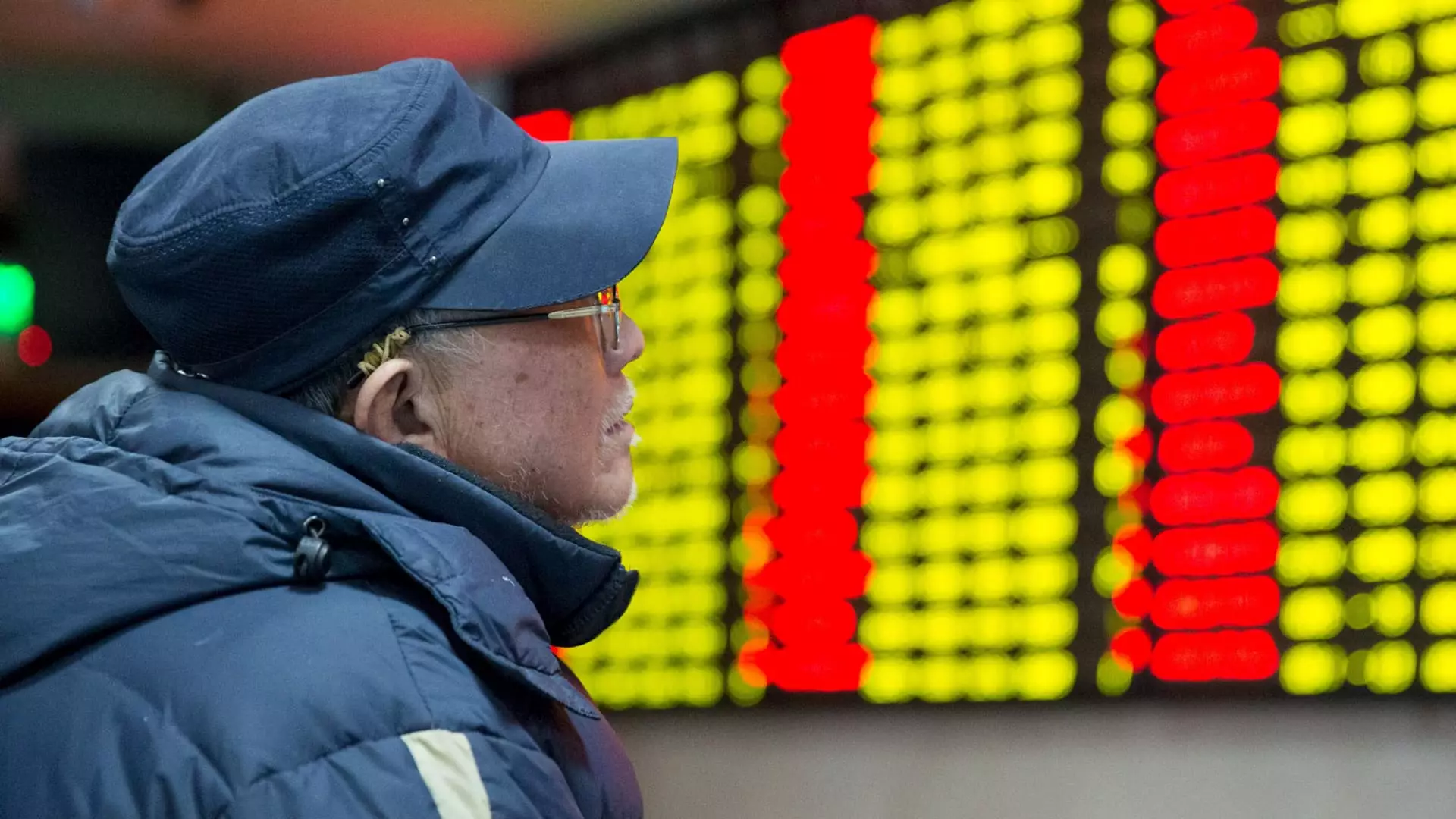China’s stock market has recently experienced a dramatic upturn, prompting hedge funds and investors to reassess their strategies surrounding investments in Chinese equities. The CSI 300 index, which accounts for shares exchanged in Shanghai and Shenzhen, surged by over 15% in one week—a remarkable figure not seen since 2008. This notable bounce comes after the index had plummeted to six-year lows earlier in the year, stoking analysts’ interests in the potential of a sustainable recovery.
The rise could be seen not just as a rebound, but perhaps a signal of an evolving investment thesis surrounding Chinese stocks. Notably, a report from JPMorgan highlighted that quality stocks are likely to recover before the broader market sees a bottoming out. Traditional views might once have deemed these excitement-laden stocks too risky, yet the dynamics could be changing, revealing opportunities previously overlooked.
In light of this newfound optimism, investment strategists have begun recommending various undervalued stocks that stand to benefit from the economic policy shifts in China. JPMorgan identified several companies poised for near-term gains, including Tsingtao Brewery, Miniso, and machinery manufacturer Zhejiang Dingli. Each is categorized not just based on past performance, but on their potential for growth relative to current market valuations.
The emphasis now lies on quality investments that have experienced a downturn, rather than chasing momentum stocks buoyed by inflated valuations. This pivot illustrates a broader recognition among investors of the value inherent in a more tactical approach—one that prioritizes fundamentals over speculative frenzy.
A substantial factor contributing to this resurgence in Chinese equities involves recent policy announcements from leadership and a re-evaluation by the People’s Bank of China (PBOC). Following significant policy announcements, which included rate cuts, local and international investors began increasing their stakes in Chinese stock markets. Financial gymnastics orchestrated by top officials, led by President Xi Jinping, aim to counteract the weakness in the property sector while solidifying fiscal support.
The reaction from traders has been overwhelmingly positive, with Goldman Sachs noting an uptick in short-term trading activity over consecutive days. This shift suggests increasing confidence in the market’s ability to stabilize and grow following a period defined by uncertainties and concerns over sluggish economic prospects.
Investor sentiment towards Chinese equities has also been evolving. Notably, billionaire investor David Tepper has publicly acknowledged acquiring more Chinese stocks, indicating a broader recalibration of risk among fund managers regarding investments in China. His assertion regarding the relative value of Chinese stocks as compared to their American counterparts highlights a significant sentiment shift, as investors seek growth opportunities in markets perceived as undervalued.
Highlighting the comparison, Tepper observed the stark differences in price-to-earnings ratios between leading Chinese firms and those listed on the S&P 500, illustrating a lucrative opportunity for investors willing to navigate the complexities inherent in the market.
Nevertheless, not all experts are convinced of a full-scale recovery without turbulence. While the short-term sentiment appears buoyed, there is an underlying caution especially given that the Chinese government is yet to solidify the specifics of its fiscal strategies. There is widespread speculation that while a rally may be currently unfolding, macroeconomic challenges such as mounting debt concerns remain prevalent.
Furthermore, the geopolitical environment, particularly the ongoing tensions between the United States and China, continues to pose concerns. The external factors influenced by such tensions may lead to volatility that investors must prepare for, amplifying the need for diligence in selecting stocks and monitoring economic indicators closely.
China’s stock market revival reflects shifting perceptions fueled by proactive governmental measures against a backdrop of historical lows. For investment firms and hedge funds, this environment presents both a challenge and an opportunity—one characterized by the need for agility and acute market awareness. The path forward may be marked by volatility, but for those willing to explore the depths of the changing market dynamics, the potential rewards could be significant.
Ultimately, successful navigation of this landscape will require not just a strategic eye for undervalued stocks, but a vigilant approach to understanding and adapting to the ever-evolving nature of policy and sentiment in one of the world’s largest markets.

